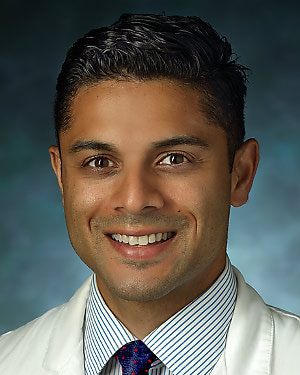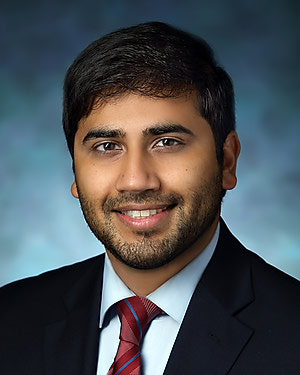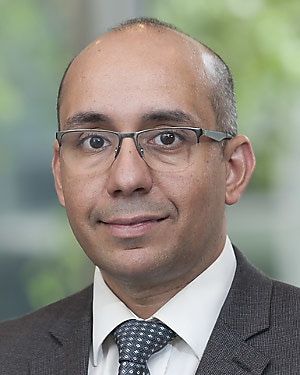Conditions We Treat: Testicular Cancer
Testicular cancer is one of the most common cancers in young men, with nearly 10,000 new diagnoses each year in the United States. Testicular cancer develops due to abnormal cell growth in the testicle. It is highly curable when it first develops but can quickly spread if not treated promptly.
Not all men with testicular cancer experience symptoms, but many cancers present as a small testicular mass. To increase your odds of a full recovery, it’s important to recognize the signs of testicular cancer and perform a monthly self-exam.
On This Page:
Sperm Banking/Fertility Preservation | Our Experts | Appointment Information | Charitable Giving
Testicular Cancer: Why Choose Johns Hopkins
- Our Testicular Cancer Program offers world-class, multidisciplinary clinical care to patients with testicular tumors, coupled with collaborative research to continuously improve the care of patients with testicular cancer.
- We call our team of specialists the Testicular Cancer Go-Team. The Go-Team is dedicated to providing timely access to care and prompt treatment for patients who may have testicular cancer.
- As leaders in crafting the national guidelines for testicular cancer, we develop individualized treatment plans, coordinate multidisciplinary care, and offer advanced, cutting-edge treatment options supported by the highest level of evidence.
- Addressing fertility and hormonal (testosterone) concerns is an important step in treatment planning. We will guide you through your options, whether you want to start a family soon or down the road.
- We recognize the long-term (“survivorship”) concerns when a cancer is diagnosed early in life. Aside from treating the cancer, we also consider the long-term effects of treatments, need for repeated surveillance scans and impacts on mental health. Our Go-Team is well equipped to discuss these concerns and issues.
- We recognize the importance of awareness, early detection and access to care in optimizing outcomes in testicular cancer. For this reason, we have active campaigns to extend our efforts in outreach, education, and advocacy.
About Our Program
Hear from Dr. Nirmish Singla about the Testicular Cancer Program's areas of research and what makes our care unique.
Testicular Cancer | Christopher's Story
Emergency surgery revealed to Christopher Sawyer that he had testicular cancer. After chemotherapy, he received continued treatment from Nirmish Singla and the team at the Brady Urological Institute. The surgery was successful, allowing Christopher to fully enjoy his life.
Understanding Testicular Cancer
We encourage all patients to take an active role in the care process. By asking questions and learning testicular cancer terminology, you will be better prepared to make informed decisions with support from your care team.
Your doctor will speak with you about diagnosis and treatment options. These articles are also helpful if you want to read more before your appointment.
Testicular Cancer Q&A - Dr. Nirmish Singla
Urologic oncologist Nirmish Singla answers some common questions about testicular cancer.
Fertility Preservation
The Johns Hopkins Andrology Lab at the Greenspring Station Campus (10753 Falls Road, Lutherville, Maryland 21093, Pavilion One, First Floor) offers sperm banking (cryopreservation) services. Please consult with your provider to order the requisite labs and call Carolina Petrella at 410-583-2714 to schedule an appointment for sperm banking.
Survivorship and Advocacy
For a lot of men, treatment for testicular cancer does not mark the end of the journey. After surgery, chemotherapy or radiation you may be coping with side effects and have concerns about cancer recurrence. You may want to focus on your physical and emotional well-being, or connect with others who understand what you’re going through.
While testicular cancer is relatively rare, the survival rate is 95% or better. Therefore, there are hundreds of thousands of survivors in the U.S. and thousands in this region. Johns Hopkins has an expansive network of survivors, and we are happy to provide connections to an individual survivor or loved ones who have agreed to talk to other survivors.
Testicular Cancer Surgeons (Adult)
Testicular Cancer Surgeons (Pediatric)
Fertility Specialists
Medical Oncologists
Request An Appointment Request An Appointment
To receive an assessment, we will ask you to provide the following test results:
- Imaging that demonstrates a solid, vascular mass of the testicle (scrotal ultrasound preferred).
- Tumor marker blood tests (HCG, AFP, +/- LDH) *OR* a history of testicular cancer with radiographic or serum evidence of recurrence.
Schedule by phone
Testicular Cancer Research at Johns Hopkins
We have an active clinical and translational research program to continue advancing the needle in testicular cancer diagnosis and treatment outcomes. In addition to ongoing research conducted internally, we have active partnerships and collaborations with other leading centers of excellence in germ cell tumors around the world. Learn more about the Singla Research Program: Clinical and Translational Research in Genitourinary Oncology.
Researching Causes of Testicular Cancer
Dr. Sunil Patel joined the Testicular Cancer Awareness Foundation's podcast, It Takes Balls, to discuss research looking at the possible causes of testicular cancer.









